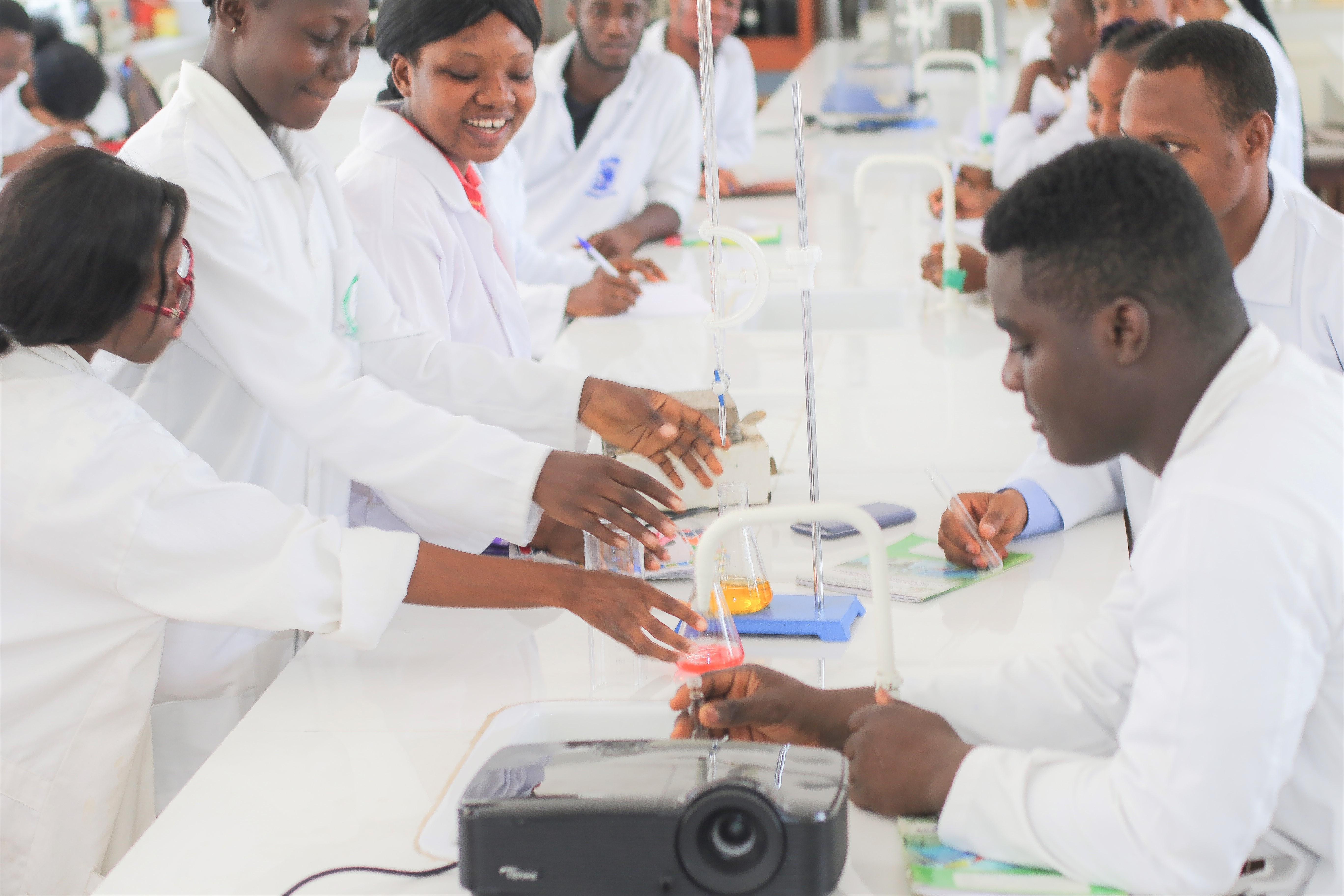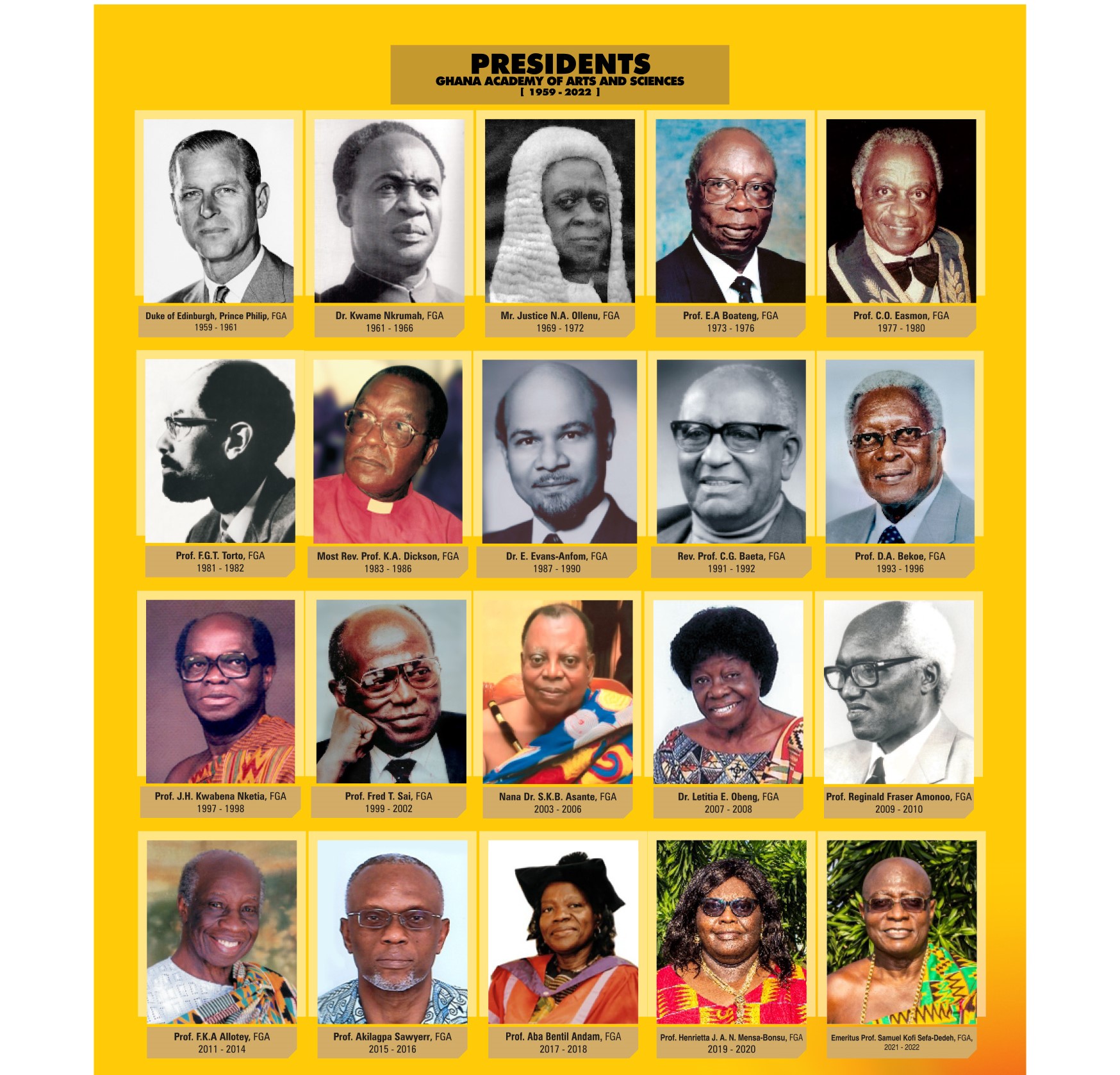Science students at the Accra Technical University working on an experiment. Photo: UNDP Ghana.
On the International Day of Women and Girls in Science, let us recognize significant progress. According to UNESCO Science Report 2021, one in three researchers in science globally is a woman. In Africa, 30% of science professionals are women and female enrolment in Science, Technology, Engineering and Mathematics (STEM) courses is rising.
Yet women and girls are still underrepresented. Globally, only 12% of the members of science academies are women and they comprise only a quarter (28%) of tertiary graduates in engineering and 40% of computer sciences graduates. In Africa, the share of women fellows of the African Academy of Sciences is only 17%.
Ghana follows this trend; only 14% of all students attending university are female and women made up 26% of PhD graduates in 2018. This gender disparity is reflected in the leadership of the Ghana Academy of Arts and Sciences. The Academy has only had 3 women Presidents out of 20 in the 52-year history of the Academy. More needs to be done to bridge the country’s gender gap in science.
Women in science are real agents of change. They are already helping countries to accelerate achievement of all SDGs. Take the example of Prof Esi Ewuah, a fellow of the African Academy of Sciences and one of only three female fellows from Ghana. A winner of many awards, Prof Ewuah’s innovative research projects in engineering and science have helped to improve the environment, water, and sanitation in the country. Quakyi Isabella Akyinbah, a leading Bioscientist and Mary Chinery-Hesse are the other two fellows of the African Academy of Sciences from Ghana having blazed the trail and made significant impact in their respective fields.
Given the opportunity, women and girls can effectively contribute to development by providing solutions and fresh perspectives to existing challenges. Take the example of Miishe Addy and Regina Honu of Ghana who are among Africa’s female innovators of 2021. Mishe’s organisation uses digital technology to address shipping challenges on the continent, making trade more efficient and predictable and in turn providing income earning opportunities for thousands of people. Regina’s institution equips talented young women with the technical and soft skills required to land jobs in technology as a means of reducing the gender gap in the industry.
Educating girls in STEM enables them to achieve their potential and play an effective role in addressing development challenges. At 20 years of age, Janet Kekesi is on the way to achieving her dream of becoming ‘a top-notch engineer’ (UNDP story). She is currently an operating technician working at Ghana’s first mini-hydropower plant in Tsatsadu. Having more ‘Janets’ calls for starting young, targeting women, and investing more in women-led research.
By starting young, we can encourage, equip, and mentor girls through initiatives such as the Miss Geek Africa/ Miss Geek Ghana to inspire girls to take up STEM courses and careers. Working with the Ministry of Communications, the Miss Geek Ghana competition provides young (13-21 years) female software app developers with business training and financial support to develop their socially innovative projects, addressing various challenges in Ghanaian society.
Secondly, we must support women in science, to stay in science. Working with academic institutions and employers, it is possible to provide professional support to women scientists through scholarships, mentoring programmes and gender-friendly policies so that women thrive.
Finally, let’s invest more in women-led innovations and fund women’s research to raise the level of venture capital directed towards women-founded start-ups from the current 2% globally (UNESCO Science Report 2021).
Having more women in science is a key driver for the achievement of Africa’s commitment to power sustainable development through science technology and innovation as captured in the African Union’s Science, Technology, and Innovation Strategy for Africa 2024. This is echoed in Ghana’s own National Science, Technology, and Innovation Policy (2017-22).
UNDP is committed to supporting the participation of women as innovators and active contributors to sustainable development. The International Day of Women and Girls in Science celebrated annually on February 11th is a unique opportunity to rally our efforts, Together, we can narrow the gender gap in this field that is central in achieving the SDGs.
Let’s start by honouring our leading women in science who are already making a significant contribution and invest in attracting and retaining more women in science so we can transform Africa. Women leaders in the science field, especially those with ‘a seat at the table’, have an opportunity to exert their influence and power to encourage a levelling of the playing field and open doors for the next generation of female scientists.
The Ghana Academy of Arts and Science has only had 3 women Presidents out of 20 in the 52-year history of the Academy.

 Locations
Locations





